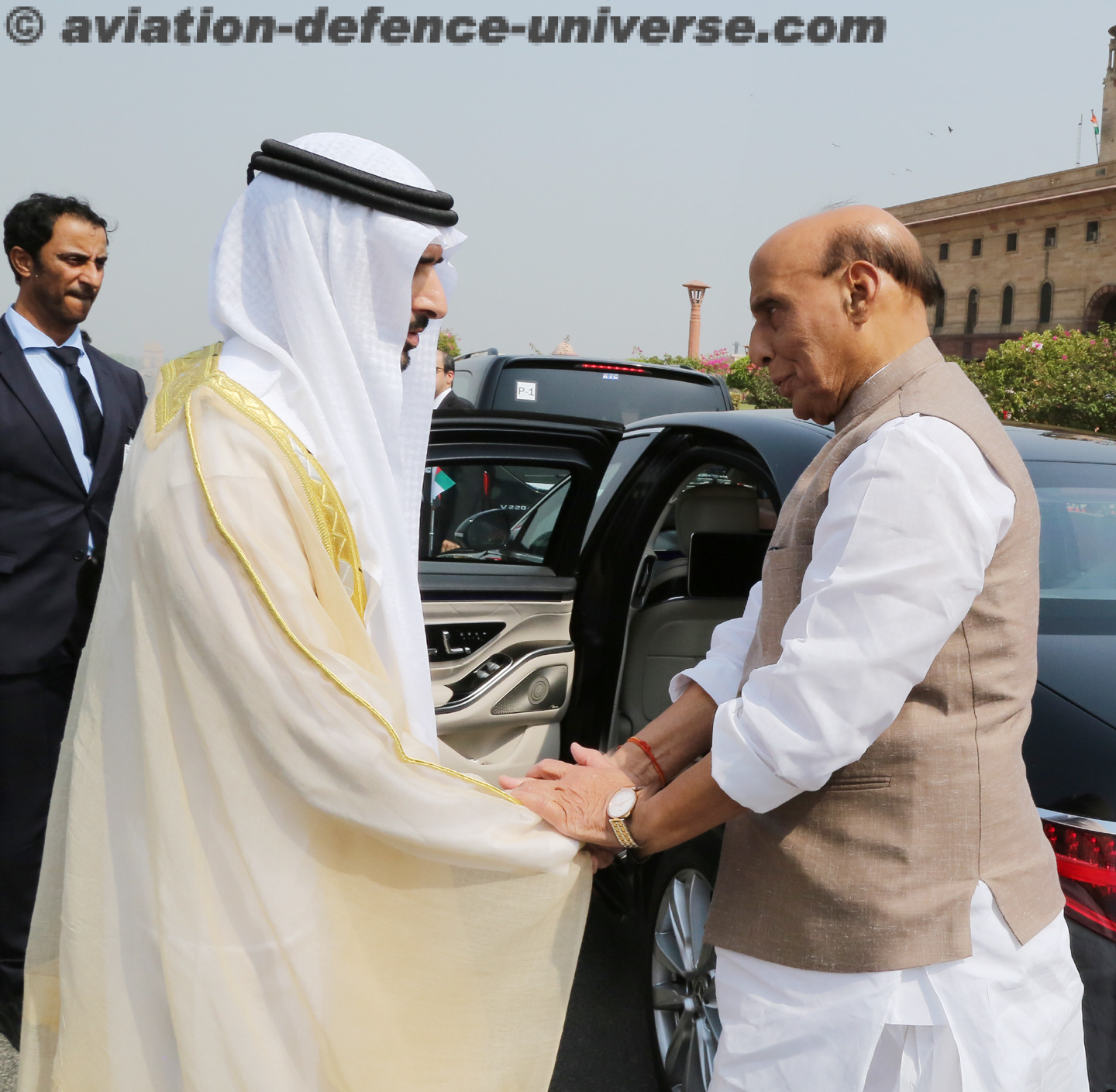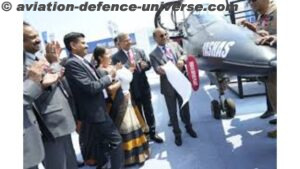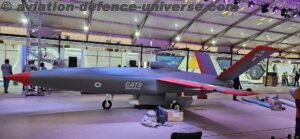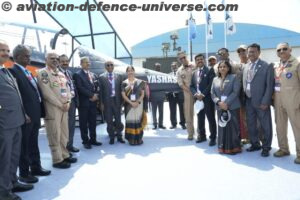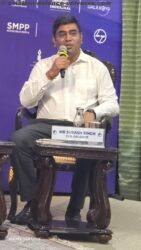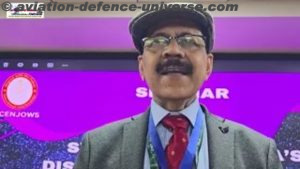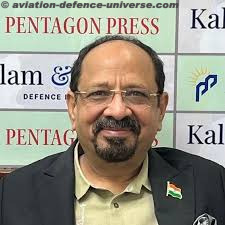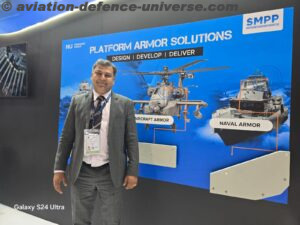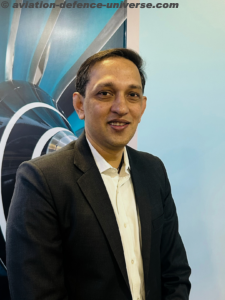 Bangalore. 13 February 2025. “Ours is the original ‘Make in India’ story which started 68 years ago when we partnered with Hindustan Aeronautics Limited (HAL) for licensed production of our engines within the country. We have a strong joint venture with HAL called International Aerospace Manufacturing Pvt. Ltd. (IAMPL), which manufactures aero-engine components for defence, civil and business jets. Our other joint venture with Force Motors, called Force mtu Power Systems, produces mtu Series 1600 engines and complete generator sets at the Export-Oriented Unit in Chakan near Pune, for both Indian and global markets,” stated Abhishek Singh, SVP – India and SE Asia, BD & Future Programmes (Defence), Rolls-Royce in an exclusive interview with Aviation & Defence Universe (ADU).
Bangalore. 13 February 2025. “Ours is the original ‘Make in India’ story which started 68 years ago when we partnered with Hindustan Aeronautics Limited (HAL) for licensed production of our engines within the country. We have a strong joint venture with HAL called International Aerospace Manufacturing Pvt. Ltd. (IAMPL), which manufactures aero-engine components for defence, civil and business jets. Our other joint venture with Force Motors, called Force mtu Power Systems, produces mtu Series 1600 engines and complete generator sets at the Export-Oriented Unit in Chakan near Pune, for both Indian and global markets,” stated Abhishek Singh, SVP – India and SE Asia, BD & Future Programmes (Defence), Rolls-Royce in an exclusive interview with Aviation & Defence Universe (ADU).
ADU. How is Rolls-Royce contributing to India’s aspirations of expanding manufacturing and defence exports?
Abhishek Singh. Rolls-Royce sees India as a significant opportunity for growth and expansion of its global supply chain, specifically in the A&D sector. We work with a large set of supply chain partners, with a sharp focus on enhancing manufacturing capabilities and integrating them into the global supply chain ecosystem. We continue to strengthen and grow these partnerships, in line with the ‘Make in India’ initiative.
We are also proud of our engineering capabilities in India, with 2000 high-skilled engineers working in-house and through outsourcing agreements on various global development programmes. Overall, more than 3000 people work across the Rolls-Royce ecosystem in India, including our own businesses, supply chain partners and JVs.
ADU. Tell us about Rolls-Royce’s proposal for India’s AMCA programme?
Abhishek Singh. Our presence in India spans over 90 years, and we have continued to support the Indian Armed Forces with complex power and propulsion solutions. Rolls-Royce has also successfully transferred combat jet engine technology in India, enabling manufacturing, assembly and testing capabilities in-country. Today, we are well-positioned in the region with a strong ecosystem of strategic partnerships, skilled talent, digital solutions, service delivery, robust supply chain and manufacturing.
We are keen to participate in co-development opportunities that will create both technology and capability in India, and help accelerate India’s vision of self-reliance in Defence. Our proposed combat aircraft engine co-development model will offer India an opportunity to create and own intellectual property (IP) for critical combat engine technology, allowing future upgrades and exports. Such a partnership will ensure the transfer of both know-how and know-why that will support and facilitate future development programmes. This will also enable the supply chain ecosystem and defence production capabilities for combat engines in India including aftermarket support, with significant potential to generate job opportunities.
This is in contrast with the license-to-build approach where IP is owned by the OEM (Original Equipment Manufacturer) resulting in limited or no in-country capability development for India. We are offering a collaborative model for bespoke combat engine, development and lifetime support to suit India’s requirements.
Such a programme, with the full support of the UK Government, would deepen defence cooperation between India and the UK. The UK is a strong and natural ally for India in pursuing the co-development of combat engines. The recent 2+2 dialogue and other engagement between the two nations further underscore the commitment to a comprehensive and strategic India-UK partnership.
The time is opportune to take this partnership to the next level through co-creation of critical technologies that the UK is well-placed to offer. Rolls-Royce, with its long-standing relationship with the Indian Armed Forces, stands ready to be the industry partner of choice to collaborate with Indian partners to deliver this vision.
ADU. How is Rolls-Royce supporting the Adour engines in service with the Indian Air Force?
Abhishek Singh. As the Indian Air Force undertakes its modernisation programme, Rolls-Royce is committed to providing it with the best value, and highest quality products possible. The Adour Mk 804/ Mk 811 was made, and continues to be supported in India by Hindustan Aeronautics Limited (HAL), with Rolls-Royce support. We are committed to this partnership and will continue to support today’s fleet, including the Adour Mk 804/ Mk 811 through diligent planning and mutual cooperation of IAF, HAL and Rolls-Royce.
Rolls-Royce and HAL have partnered to ‘Make in India’ engine parts for Adour engines, supporting their long-term sustainment for both Indian and global customers. Additionally, we also manufacture Adour engine components with various partners in India. This further underscores our efforts to expand indigenous production capabilities while ensuring the operational readiness and performance of the Adour engine fleet, ensuring the highest level of support for these engines until the end of their service.
ADU. Tell us about the partnership that Rolls-Royce announced with TCS for hydrogen fuel systems for sustainable aviation.
Abhishek Singh. Rolls-Royce is committed to becoming a net zero company by 2050 and supporting our customers to do the same. We are improving the efficiency of our products, proving compatibility of our engines to alternate fuels and collaborating with partners to enable the energy transition journey.
Our partnership with Tata Consultancy Services (TCS) involves research into hydrogen fuel system technology, continuing to prove hydrogen could be a zero-carbon aviation fuel of the future. With the support of TCS, we want to address three key challenges in the journey to enabling hydrogen for use in aviation: fuel combustion, fuel delivery, and fuel systems integration with an engine. Additionally, Rolls-Royce and TCS have been working together since 2010 in the areas of design, manufacturing engineering, control systems and software, after-market services as well as IT services.
This partnership with TCS highlights Rolls-Royce’s commitment to driving sustainable transformation across industries and supports the broader mission of using advanced technologies to make a positive societal impact. It is a crucial step in advancing these sustainability goals, positioning the company at the forefront of the industry’s efforts to reduce environmental impact and contribute to a sustainable future in aviation.
As told to Sangeeta Saxena
















